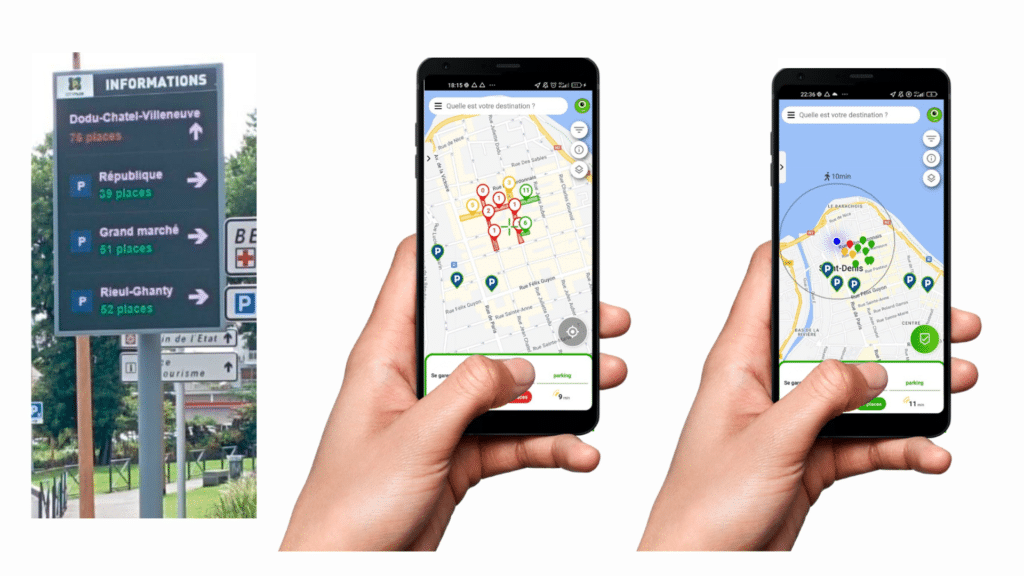
Artificial intelligence (AI) is revolutionizing the healthcare sector, and hospital operations in particular. Its application aims to improve and optimize hospital management. From the patient pathway to early diagnosis and the management of material and electronic resources, the arrival of AI has brought many advances. Here’s a detailed look at the impact of AI in hospitals, the benefits and examples of use cases.
1. AI and improved patient care within the facility
AI is radically transforming the hospital patient journey, making processes smoother and improving the overall experience. Thanks to AI, patients can benefit from more efficient appointment management, reduced waiting times, and better coordination between different hospital departments.
Appointment scheduling
AI algorithms can optimize appointment scheduling based on the availability of doctors and equipment, reducing waiting times for patients.
Hospital navigation and patient safety
AI-based applications can guide patients through the hospital, showing them the shortest routes to their destinations and reducing the stress of navigating complex buildings. On the other hand, AI is now available to ensure patient safety thanks to smart vision. This is what Videtics has come up with, developing an AI capable of recognizing falls and positions, as well as detecting intrusions and raids.
2. AI and diagnostics, early detection of pathologies

AI improves the accuracy and speed of diagnosis, enabling early detection of disease and rapid intervention. This translates into better patient outcomes and lower long-term treatment costs.
Medical Imaging
Deep learning algorithms analyze radiological images, such as MRIs and X-rays. They can detect anomalies such as tumors, often with greater accuracy than human radiologists. Siemens Healthineers (Siemens’ medical branch), a major supplier of medical imaging equipment, developed a collaborative algorithm for precision medicine in the wake of the Covid-19 pandemic.
Genetic analysis
AI helps interpret genetic sequencing data, identifying mutations associated with hereditary diseases or increased cancer risk.
3. AI and data management and security

AI plays a crucial role in managing and securing patient data, ensuring its confidentiality and protection against cyberthreats. AI systems can also analyze vast amounts of data to provide valuable insights that improve patient care.
Medical file analysis
AI can sort and analyze large amounts of medical data to identify trends and anomalies, facilitating better clinical decision-making. On its website, Intel, a major IT and technology player, describes its vision of the “intelligent hospital” and shares several success stories.
Cybersecurity
Using AI to detect and respond to potential cyberattacks on healthcare systems, protecting sensitive patient information. Here’s an article from Stormshield, a cybersecurity specialist, explaining the risks associated with data.
4. AI and resource management and operational optimization

In another application, AI also optimizes hospital resource management, improving operational efficiency and reducing costs. It enables more judicious use of equipment and better planning of surgical procedures.
Equipment traceability
AI-based systems can track the use and location of medical equipment in real time, ensuring availability and reducing waste. Sigscan offers just such a solution. A geolocation chip barely larger than a square of chocolate is placed on the equipment to ensure traceability.
Operations Planning
AI algorithms optimize the planning of surgical operations, minimizing waiting times and maximizing the use of operating theatres.
5. AI and improving the reception and parking experience

Managing the flow of people and vehicles in hospitals can also rely on AI, reducing congestion and facilitating access to facilities. Intelligent systems can anticipate busy periods and adjust resources accordingly, improving the overall experience for patients and staff alike. What’s more, it contributes to improving QWL (quality of life at work) and making the hospital site safer.
Parking management or smart parking
Deploying an intelligent parking display system helps optimize the use of parking spaces. In this way, drivers are directed straight to the available spaces. Information is displayed via a mobile application, dynamic panels for the general public, and a control panel for decision-makers. In this way, the time spent looking for a parking space is reduced, traffic in the parking lot is reduced and C02 emissions are also reduced. Cocoparks deploys a complete, simple and effective solution to combat these effects.
Optimizing patient flows
AI analyzes patient flow data to improve resource allocation and minimize waiting times in different areas of the hospital. Acorel is one of the companies offering this person-counting solution. This makes it possible to regulate the flow of people and count the number of patients per zone or room in real time.



